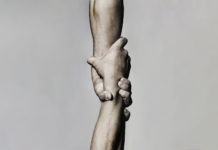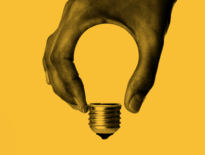As we look at ourselves from the outside, taking life seriously becomes difficult. This loss of confidence, as well as the attempt to regain it, are both matters related to the meaning of life. – Thomas Nagel, View from Nowhere
It is said that the only certainty we have is that we will die—everything else is uncertain. Of course, uncertainty is part of our lives, but in different ways, and in different proportions. This awareness is not meant to make us surrender to the avalanche of uncertain elements surrounding us and influencing our existence. Our natural reaction is to try and reduce uncertainty in our life, in order to be able to have a bearable existence, and adapt to our environment. The purpose of minimising uncertainty is for one’s mental comfort. Yet, how do we achieve it? How can we find—among the countless unhelpful recommendations and all the illusory solutions—a lasting, safe haven of inner well-being, even in the face of uncertainty?
Possible reactions
Let us compare the following:
• Person A must solve a first-degree equation. In order to find the unknown variable, he must use certain knowledge about multiplications, divisions, properties of equality, and so on, and apply a certain solution scheme. He does not have all this knowledge, which is why the textbook shows him how to solve it.
• Person B, now a grown man, finds out that his parents adopted him, that they are not his biological parents. His reaction is to learn from his adoptive parents and the authorities as much as possible about his biological parents, about the reason they abandoned him, what they looked like, who he took after, what kind of people they were, what kind of traits he inherited from them, if he has any siblings, and other questions.
• Person C is in love and would like to know if the one she loves feels the same about her. Her reaction is to look for various “signs” of love, to interpret various gestures, words, deeds and, finally, resort to the daisy game, picking off petals, one by one, according to the popular ritual: “He loves me, he loves me not, he loves me, he loves me not”.
• Person D is passionate about gambling and hopes that one day he will have the chance to score and get rich. He is so confident that he risks and borrows money, plays roulette and bets everything on black, because that’s what an inner voice whispered to him.
These reactions are understandable on a psychological level, but on a logical level, not all of them are rational. Not all of them can help reduce uncertainty. In fact, the rationality involved in trying to reduce uncertainty gradually decreases from the first to the last example.
There are objective uncertainties caused by a lack of knowledge and data, but the possibility to obtain the necessary information through certain steps reduces the initial uncertainty and helps us make informed decisions. However, there are also subjective uncertainties, caused by one’s personal perceptions of reality. Sometimes, that reality cannot be explored by rational means.
What one can do when one struggles with uncertainty is work on the skills to evaluate it and assess it as accurately as possible. One can do this either by acquiring a special competence in the field, by gaining life or professional experience, or by general knowledge, creativity, emotional intelligence, or intuition.
Still, why do people often choose to deceive themselves as they face uncertainty? Why do they give themselves wrong answers and rely on illusory solutions? Is it in our human nature to react like that? How can we avoid self-deception?
Theoretical approaches
Classical philosophy presents a model of human rationality on a purely theoretical and abstract level, based on the “presupposition of certainty”, as sociologist Cătălin Zamfir remarks. According to this idealised model, a person begins by clearly formulating the problem to be solved, imagines various solutions, then evaluates them. They analyze their difficulty, efficiency, and implications, then make an informed decision, choosing the best option, and finally, implementing it. He said:
“This classical model of rationality is above all criticism. Only one observation can be made about it, but it is crucial. Such a model is suitable for describing human behaviour in terms of completeness of knowledge. Most decision-making situations, however, do not meet this requirement.”[1]
It is precisely in connection with the real decision-making situations that the sociological approach to the study of uncertainty becomes evident. It uses probability, risk assessment, and takes into account the behaviour of individuals and groups in the social contexts in which it does not manifest itself rationally, or completely rationally. The aim is to study the possibilities of optimising individual or collective decision-making by reducing uncertainty.
In psychology, uncertainty is related to the nature and functioning of the human psyche, in its conscious and unconscious manifestations. It is related to rational and non-rational functioning from the perspective of one’s need to adapt to one’s living environment, to find mental comfort in this adaptation, and to feel in control of one’s choices and decisions. Psychologist Mihai Ralea (quoted by C. Zamfir[2]), wrote about a specific feature of human psychology: the ability to postpone a decision, action, or reward. This is the result of his reasoning regarding the given situation, the existing information, the degree of uncertainty given by the ignorance of certain significant details. Therefore, because we are not able to make decisions due to insufficient data, our advancement in knowledge is sometimes motivated by uncertainty. In this case, it plays a beneficial role, where it does not block the initiative. But the sociologist further states: “Not every uncertainty motivates knowledge, but only the uncertainty perceived to be reducible. To the extent that the decision maker appreciates that clarification can be obtained through an effort of knowledge, pressure to postpone the decision and develop cognitive activity increases.”[3]
In other words, when we are convinced that we can reduce uncertainty, it urges us to work, to make the effort to conduct certain investigations, or to analyse more deeply, and interpret the information we’ve already acquired. But what happens to our reaction to uncertainty when it is perceived as not reducible, but perhaps even overwhelming, or paralysing?
Life’s uncertainty
I remember a moment during my entrance exam to the Faculty of Philosophy: we were about halfway through the written part, and I was writing at a fast pace, excitingly reproducing what I was thinking and what I remembered as accurately as possible. At one point I stopped and said to myself “If I finished the paper now, I certainly wouldn’t pass the exam. But I can continue it, I have the necessary data, I will complete it well, I can anticipate its conclusion”. But I felt, beyond the certainty in my ability to complete it, a dose of uncertainty about anything that might happen unexpectedly to prevent me from completing the work—anything from an earthquake to fainting. I realized then that the unknown can never disappear from our lives.
To an extent, life can be defined as the unexpected that happens to us, and what unfolds around us and within us.
The unforeseen, the insecurity regarding various aspects, processes, and results are ways in which uncertainty manifests itself. These can sometimes cause frustration, distrust, even suffering, but other times they intrigue, urge exploration, and create mystery and charm. For example, uncertainty about the outcome of a medical treatment causes discomfort, but the uncertainty of a pregnant woman about the features of her future child brings charm, excitement.
In general, uncertainty is felt negatively when it is relevant to the future, to events subsequent to the present moment in which we feel insecurity, mistrust, and concern. We feel this insecurity because of the workplace, health, relationships with others, the country’s economic stability, the exchange rate, meteorological phenomena, and so on.
Even when it has to do with experiences in the past, it affects the future. For example, the family whose child has been missing for years feels the frustration and suffering of not knowing if he is still alive or not. This prevents any major decision from being made, any future prospect for the family—the prisoners of uncertainty. It comes from the past, but it is an uncertainty that targets any plan for the future.
It is human nature to seek to secure our future through decisions based on predictable phenomena and consequences. And we naturally try to evaluate risks, opportunities, and probabilities in our minds concerning what will happen, and to anticipate what comes next.
However, anthropologist Edward T. Hall drew attention to an aspect of how we relate to the world that shows how subjective our perception is. Man already makes choices depending on how one perceives and what one perceives from the world around him. These choices may be conscious, but most are not. Thus, “what man chooses to perceive… is what gives one meaning and determines the structure of one’s universe”.[4] The elements that influence one’s perception and then one’s representation, the mentally recomposed image of perceived realities, are related to a lot of factors, from temperament and character, to the culture in which one was brought up.
Moreover, there are anthropologists[5] who have described how character is influenced and shaped, to a certain extent, by the “basic cultural personality” of the society in which one was brought up. This would be a kind of cultural matrix that informs the basic features of one’s psychological make-up. Certain beliefs make Americans react like Americans, Italians like Italians, and the French like French people—in a broad sense, of course.
This shows not only how vast irreducible uncertainty is, but also how fragile our sense of certainty about almost anything is. Man tends to overestimate his sense of certainty, out of a desire to reduce existential discomfort. In this sense, one may end up deceiving oneself by wishful thinking, taking his desires as reality, “paving reality with known and convenient schemes”.[6]
Given all this, we cannot help but wonder if that is all there is. Is not man, by his nature, doomed to be tormented by uncertainty? I believe that, especially when it comes to the meaning of life, we can discover another way. We can have a chance at mental comfort, even though our inquisitive minds have hit rock bottom when it comes to the limits of human knowledge.
There is a way, a chance to escape certainty/uncertainty: it is faith. It refuses the dichotomy of certainty and uncertainty and brings up another state of mind—trust.
The moral plan replaces the existential, objective one, as a source of mental peace. But this moral plan, though it is subjective, is not to be confused with the purely subjective plan of our convenient representations and explanations. It is the realm of man’s experiences in relation to the Divine.
Here, the certainties of faith can be miraculously born, starting simply from the humble recognition of our worthlessness and ignorance. These certainties of faith are not only personal, but unique in the universe, which brings us a special peace of mind, in that it shows our value in the eyes of God. They defy luck, chance, and statistical certainty. Such a certainty of faith, unique in the universe, was given to Daniel the prophet when he spent a whole night surrounded by lions meant to devour him. Such a certainty of faith was received by Abraham through the voice that stopped him from sacrificing his son. Such a certainty of faith was received by the famous Ethiopian who came to Jerusalem through his miraculous baptism.
There are thousands, hundreds of thousands, maybe even millions of testimonies recalling such certainties of faith. Some of these certainties cannot be shared—at least not with another human being. To a person who does not share your faith, they are irrelevant or attributed to chance or hazard—to them, these certainties are impossible due to their different way of thinking and different perspective of the world. But for the one who needs it, the certainty of faith may be enough to nourish his soul and give him peace all his life.
Thus, looking at ourselves from the outside, as the philosopher Thomas Nagel did, we no longer sense our own insignificance and the world in which we find ourselves, but the unique imprint that the Divine has placed in each of us.
Corina Matei, PhD, is an associate professor at the Faculty of Communication Sciences and International Relations at Titu Maiorescu University.



















